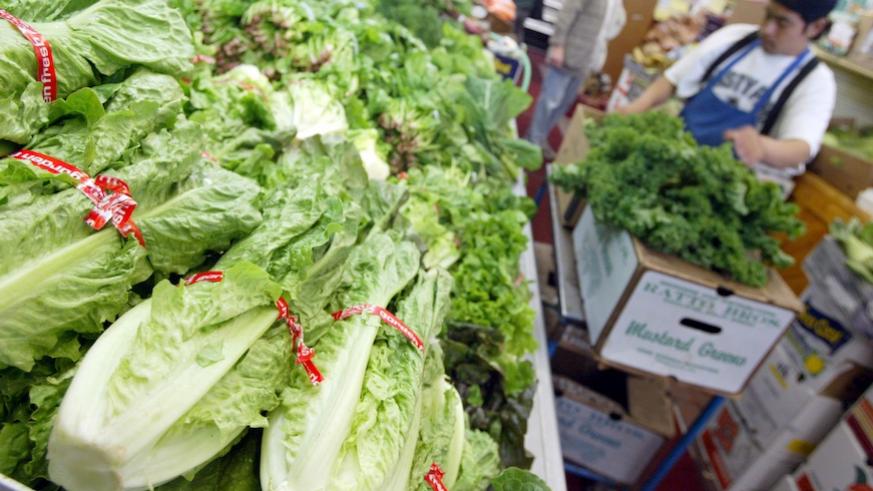The first case of E. Coli was observed in 1982 in a woman who was reported to have consumed a contaminated hamburger, leading the disease to be dubbed “hamburger disease,” according to the Centers for Disease Control and Prevention (CDC). Though the illness was successfully cured the first time, another symptom of E. Coli eventually rose again in 2011 from the consumption of fenugreek sprouts. Ever since the last E. Coli outbreak seven years ago, the public has been assured by improvements in medical treatments that it is unlikely for people to catch serious cases of E. Coli again. Contrary from what was expected, another outbreak of E. Coli recently spread not only to Canada, but also to 11 states in America so far, mainly due to the ingestion of romaine lettuce.
Coli is a type of bacteria that normally lives inside the intestines of humans and animals to help digest and break down food. Although the normal type of E. Coli is necessary for the body, pathogenic bacteria such as Shiga toxin producing E. Coli (STEC) can be more harmful, infecting individuals by entering the digestive system through the mouth or any other opening of the body. Usually, symptoms of E. Coli can include mild dehydration or a simple loss of appetite. However, once the illness gets serious, it could lead to nausea, bloody diarrhea, and even hemolytic uremic syndrome (HUS), a life-threatening kidney and blood problem that may lead to bleeding in the gums along with seizures.
“E. Coli, for the general population, might not be considered a serious problem since some people have a strong immune system,” said Alyssa Shelby, biology and anatomy teacher. “However, the main problem with E. Coli especially lies among younger and older people, who have underdeveloped or worsening immune systems, respectively. Usually, E. Coli causes symptoms of diarrhea among all age groups, which in turn leads to dehydration and other problems if left untreated for an extended period of time. Thus, it is important that communities take strong measures to prevent E. Coli from spreading by keeping food in stores and restaurants sanitary.”
For several months, the CDC has been investigating the potential causes of the spread of Shiga toxin producing E. Coli, the type of bacteria that usually leads to increased stomach cramps, bloody diarrhea, and vomiting among those affected. After several close examinations and research, scientists concluded that the recent outbreak of E. Coli was most likely due to the ingestion of chopped romaine lettuce grown in Yuma, Arizona. Out of the 28 patients with the E. Coli virus who were interviewed, 93 percent claimed that they began to feel sick within the week after consuming romaine lettuce bought from stores or served at restaurants.
35 cases of E. Coli have recently been discovered in the United States so far, with 22 people hospitalized due to serious infections. In addition, 60 individuals were reported to have symptoms of E. Coli in Canada as well, also due to the ingestion of romaine lettuce. Despite being a seemingly trivial issue to the majority, the spread of E. Coli must be addressed immediately, as the illness can be caught not only by the consumption of contaminated food, but also through even the slightest contact with another infected individual. Thus, it is easy for the disease to spread rapidly and eventually spread to other parts of the world as well if not prevented in its early stages.
“After I read about the recent spread of E. Coli in the states, I realized that it is an illness that deserves more attention than it has currently,” said Unnseo Park (10), founder of the SIS Science, Technology, Engineering and Math (STEM) club. “Of course, I have not seen actual cases of E. Coli before. However, knowing the fact that it can spread rapidly and cause a variety of painful symptoms to any individual, I think that it is important for everyone to be cautious at all times and make sure to prevent the illness before it becomes a worldwide epidemic.”
Currently, the CDC and the US Food and Drug Administration are continuing their search for the source of contamination in romaine lettuce, which still remains as a mystery. But because the initial source of E. Coli was clearly identified as romaine lettuce, the CDC is also encouraging people to avoid eating the vegetable. In fact, several stores and restaurants were banned from selling romaine lettuce to customers, for the purpose of preventing further spread of E. Coli.

